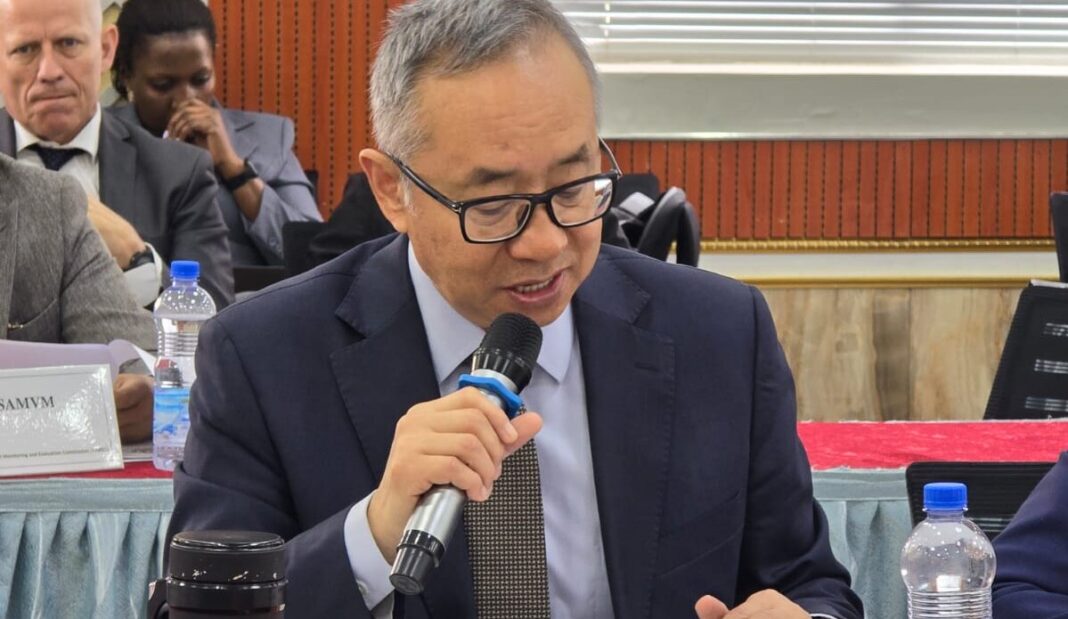Mr. Guang Cong, the deputy special representative of the UN Mission in South Sudan for political affairs. |Photo|UNMISS|.
Tuesday 6 May 2025
The United Nations Mission in South Sudan (UNMISS) condemned continuing air strikes in Fangak, Jonglei state, which have led to civilian deaths, injuries, and displacement as well as the destruction of humanitarian property.
On 3 May, aerial bombardments in Old Fangak led to seven civilians being killed while some 27 others were injured, and a Médecins Sans Frontières pharmacy was destroyed.
Another air strike near a World Food Programme warehouse in New Fangak has damaged a dyke protecting people in this remote location from floods.
The South Sudan People’s Defence Forces (SSPDF) has maintained air strikes on the positions of the armed opposition group known as the Sudan People’s Liberation Movement/Army-in-Opposition (SPLM/A-IO) and the White Army armed group in Upper Nile State and parts of Central Equatoria State.
SPLM/A-IO is the key party to the revitalized peace agreement signed in 2018, which brought about a power-sharing government, and subsequent signing of the cessation of hostilities and ceasefire pact between the main parties to the conflict.
The renewed conflict between the SSPDF and SPLM/A-IO threatens the already fragile peace deal.
“Such violence against civilians and clearly marked humanitarian facilities is unacceptable,” said Guang Cong, the mission’s deputy special representative.
“These attacks constitute a grave violation of international human rights and humanitarian law. Vitally, they contravene the Revitalized Peace Agreement and severely undermine ongoing efforts to establish durable peace in South Sudan,” he stated.
“We call on involved parties to prioritize civilian protection by recommitting to the Peace Agreement and the Cessation of Hostilities Agreement and actioning an immediate ceasefire. We also urge South Sudanese authorities to investigate these incidents and hold those responsible to account,” added DSRSG Cong.
UNMISS continues to engage with all stakeholders, including national and state authorities, security actors, uniformed personnel, community leaders, civil society organisations as well as international and regional partners to reduce tensions.




